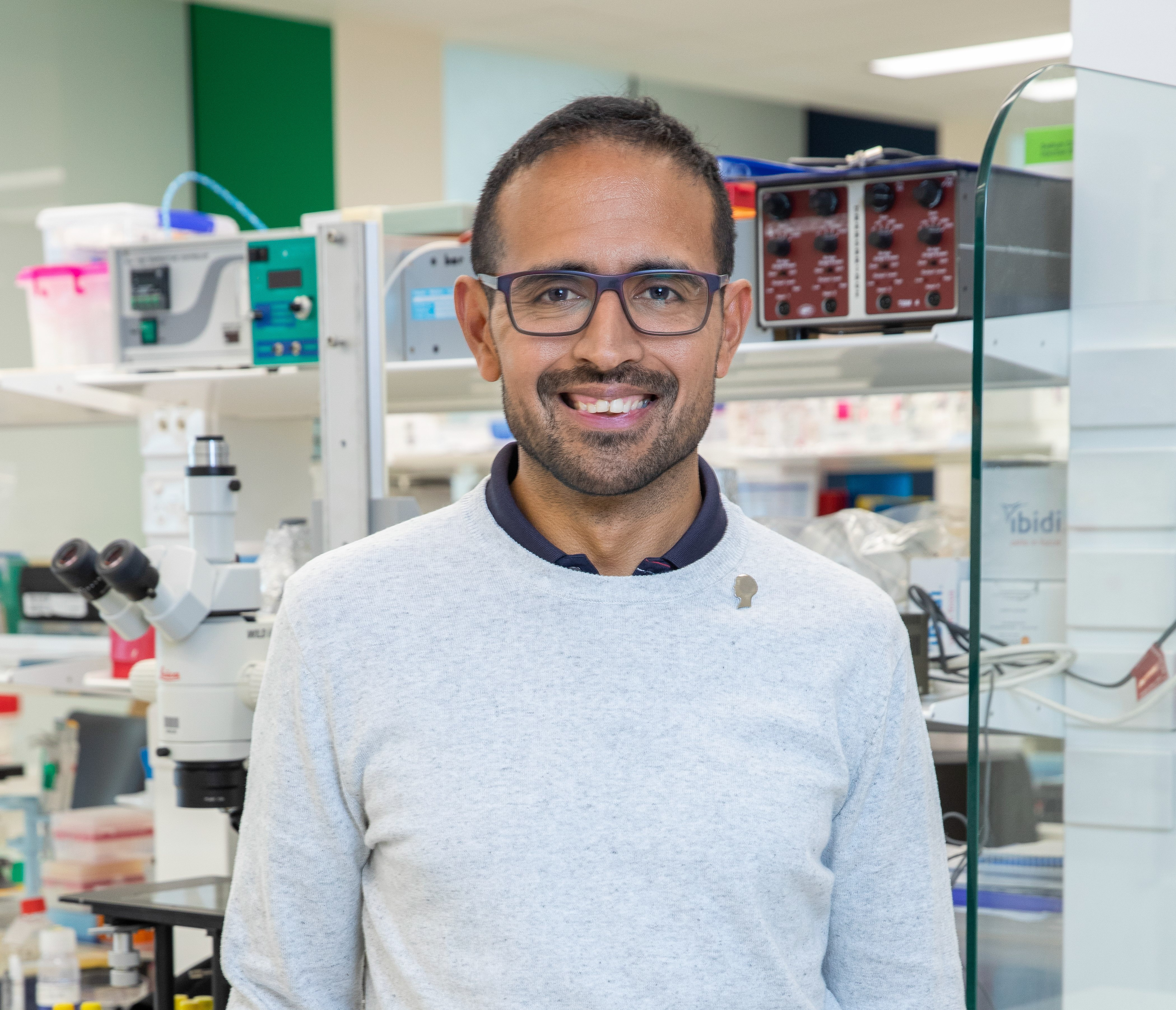Largest SA funding win worth $2 million for fatal brain cancer research
Dr Guillermo Gomez from the Centre for Cancer Biology (a partnership between the University of South Australia and SA Pathology) has been awarded $2 million to develop a new treatment for glioblastoma

This year, Dr Gomez was awarded $43,000 in NeuroSurgical Research Foundation seed funding, which enabled him to apply for this important national funding.
In this research, he will apply cutting-edge technologies, including artificial intelligence, to identify how tumours reprogram healthy cells in the brain to support their growth.
Dr Gomez explained, “Glioblastoma is the most aggressive form of brain cancer. Its median overall survival rate of 15 months has remained unchanged for three decades, highlighting a desperate need for new treatment options.
“A significant feature of glioblastoma is its capacity to invade the surrounding healthy brain tissue. Glioblastoma invasion is a critical process responsible for its dismal prognosis and a direct result of interaction between cancer cells and healthy cells surrounding the tumour tissue.
“In this project, we will apply cutting edge technologies in glioblastoma resected tumour tissue, including artificial intelligence for the precise identification of invasion sites and recently developed spatially resolved genomic and proteomic analysis for deep analysis of tumour and healthy cells at these specific locations.
“The result of these analyses will permit us to show, for the first time, what alterations occur in both the tumour and non-tumour cells as a consequence of invasion and better understand how these alterations support tumour growth, energy demands and resistance to therapy.
“Therefore, the results of this project will lay the foundations of new anti-cancer approaches that, by targeting the interactions between tumour cells and the surrounding normal brain cells, will make invasive tumour cells susceptible to therapy,” he said.
To read about all current brain tumour research funded by the NRF click here.




